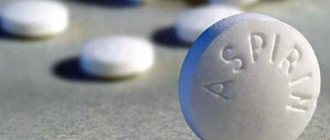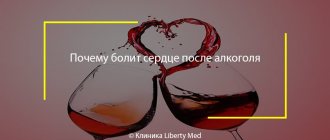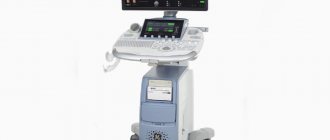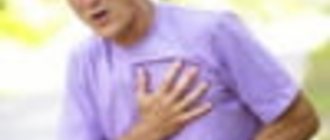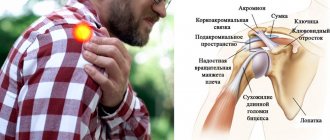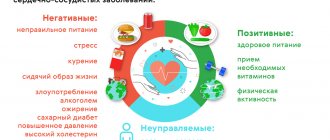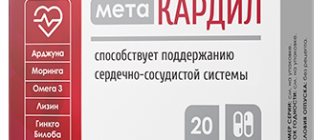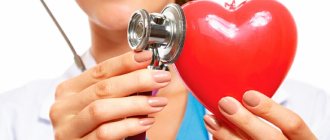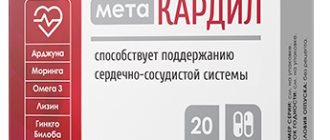The heart is one of the most vital organs in our body.
Any violations in its work can very seriously affect our well-being. Some disruptions to its functioning are quite dangerous and can lead to death or very serious complications. Most often, pain in the heart manifests itself as pain in the chest. Such pain is the most dangerous and requires immediate attention to a medical facility. There are situations when pain in the heart is permanent and manifests itself over a long period of time without worsening your well-being. Such symptoms, as a rule, are not critically life-threatening; they can be managed at home, but it is still worth seeing a cardiologist.
Types of heart pain
According to the mechanism of pain in the heart area, two main types can be distinguished:
- Anginal or ischemic pain - appears when there is a narrowing or complete blocking of blood flow in any artery that supplies the heart with oxygen. This leads to angina pectoris, and subsequently myocardial infarction. These are the most dangerous pains, the consequences of which are quite difficult to predict. In this case, it is strictly forbidden to self-medicate, as you can get very life-threatening complications.
- Cardialgia is all other pain that is not associated with blockage of the blood supplying arteries. Cardialgia can be inflammatory, rheumatic or neurotic in nature. If such pains are permanent, and a person knows the diagnosis, then he can stop their occurrence in certain ways.
How to distinguish cardialgia from anginal pain?
Knowing the clinical manifestations in both cases will help determine what kind of pain you are experiencing.
Anginal pain is characterized by:
- The occurrence of pain after a serious emotional shock or severe physical activity.
- The nature of the pain is pressing or squeezing.
- The pain is localized behind the sternum and spreads to the left side - shoulder, shoulder blade and arm.
- Symptoms may disappear or be significantly reduced after taking nitroglycerin.
- An attack of anginal pain may be accompanied by general weakness, dizziness, excessive sweating or loss of consciousness.
Such a clinical picture is a reason to immediately consult a doctor.
Cardialgia is characterized by the following manifestations:
- The pain is aching or stabbing in nature,
- Painful sensations arise gradually and last for a long time without significant deterioration,
- Most often, the pain is localized to the left of the sternum and does not spread to other parts of the body.
- In this case, the pain does not decrease when taking nitroglycerin, but you can observe a significant improvement in the condition when taking painkillers.
Lung diseases.
Pneumothorax (collapsed lung), high pressure in the blood vessels supplying the lungs (pulmonary hypertension), and severe asthma may also cause chest pain. Muscle diseases.
Pain caused by muscle diseases usually begins to bother you when you turn your body or raise your arms. Chronic pain syndrome such as fibromyalgia. May cause persistent chest pain.
Damage to ribs and pinched nerves. Bruises and fractures of the ribs, as well as pinched nerve roots, can cause pain, sometimes very severe. With intercostal neuralgia, pain is localized along the intercostal spaces and intensifies with palpation.
Shingles. This infection, caused by the herpes virus and affecting the nerve endings, can cause severe chest pain. The pain can be localized in the left half of the chest or be of a girdling nature. This disease can leave behind a complication - postherpetic neuralgia - the cause of prolonged pain and increased skin sensitivity.
Diseases of the gallbladder and pancreas. Gallstones or inflammation of the gallbladder (cholecystitis) and pancreas (pancreatitis) can cause pain in the upper abdomen, radiating to the heart and much more.
Since chest pain can be the result of many different reasons, do not self-diagnose or self-medicate, and do not ignore severe and prolonged pain. The cause of your pain may not be so serious - but in order to establish it, you need to contact a specialist.
Cause of heart pain
Anginal pain occurs for a single reason - acute coronary heart disease, which manifests itself in angina pectoris or myocardial infarction. There are many more reasons for cardialgia. Knowing the cause of cardialgia is critically important, as this affects the choice of treatment.
The most common causes of cardialgia are:
- Neurosis. Pain in the heart appears as a response to a large number of negative emotions and psychogenic stimuli.
- Inflammatory heart diseases - myocarditis, endocarditis, pericarditis, myocardial dystrophy, and so on.
- Heart disease that occurs against the background of other systemic diseases - hypertension, diabetes, kidney or thyroid dysfunction.
- Diseases of a rheumatic nature.
- Acquired or congenital heart valve defects.
- Benign tumors in the heart.
IMPORTANT: The cause of pain in the heart can be a fairly large list of diseases and pathological conditions of other organs and systems, which radiate pain to the sternum. For example, inflammation of the gastric mucosa, chronic or acute bronchitis, herpes zoster, intercostal neuralgia, chest injuries, neuroses and disorders of the nervous system, osteochondrosis of the thoracic spine.
When emergency hospitalization is needed for heart pain:
- If pain occurs suddenly,
- If pain occurs early in the morning or at night, when eating, under severe stress or after severe physical activity,
- If the pain is intense and unbearable, causing a burning sensation, pressure, squeezing or tearing,
- The pain radiates to the left side of the body, sometimes spreading to the stomach or back,
- The intensity of pain does not change with changes in body position, inhalation and exhalation,
- The pain is accompanied by shortness of breath, fear of death, panic, weakness, pale or cyanotic skin, nausea, vomiting and loss of consciousness.
The presence of at least some of these signs indicates the need for immediate hospitalization.
What can you do at home before the ambulance arrives?
If acute chest pain occurs, it is necessary to record the time of the attack and immediately call an ambulance. Over the phone, describe the symptoms of occurrence: the presence of a stress factor or serious physical activity, the nature of the pain, the presence of pale skin or shortness of breath, and so on.
Before the medical team arrives, it is important to do the following:
- Try to calm the patient without using any medications,
- It is convenient to sit or lay the patient down, avoiding a position on the left side,
- Ensure air flow into the room,
- Remove clothes or unbutton them so as not to interfere with the free position of the body,
- Give one aspirin tablet, it will help make the blood less thick, which will improve blood circulation,
- Give a nitroglycerin tablet under the tongue, but if you are not sure that the pain is due to cardiac pathology, it is better to abandon this step. Nitroglycerin has the ability to dilate blood vessels and reduce blood pressure, which can be extremely dangerous for hypertensive patients.
- If the pain does not subside, then give another nitroglycerin tablet. It is allowed to take 3 tablets of nitroglycerin at intervals of 5 minutes. Even if the patient felt better after 20 minutes and the attack was stopped, hospitalization is still required to establish a diagnosis.
Bela-blockers
Drugs that normalize heart rhythm and reduce the oxygen demand of myocardial tissue. In case of a heart attack, the drug not only relieves pain, but also reduces the likelihood of a heart attack and death by 20%.
Metoprolol
Oral tablets that begin to work within 15-20 minutes. Contraindications for the use of the drug are:
- breastfeeding period,
- pregnancy,
- acute heart failure,
- cardiogenic shock,
- acute heart attack,
- persistent decrease in blood pressure.
Attention! It is important to consider that the drug reduces psychomotor and motor reactions, and also, in rare cases, reduces vision, which can be dangerous when performing work that requires concentration and reaction speed. The heart drug Concord also belongs to this category of drugs.
What can be done at home if hospitalization is not required?
If the pain in the heart is of the nature of cardialgia, then emergency hospitalization is not required; the patient can be helped at home. But in these cases, it is important to know what kind of disease you are dealing with.
Angina pectoris pain can be relieved by:
- Mustard plasters in the heart area. In five minutes it will dilate the blood vessels and cause blood flow. In addition, the burning effect of mustard will distract you from unpleasant sensations. Mustard plasters should be kept for no more than 20 minutes.
- The pepper patch has a similar effect; you should also not keep it on for more than 20 minutes.
- Mustard foot bath - dissolve a tablespoon of water in two liters of warm water, soak your feet for 10-15 minutes.
- Fir oil – rub 10-15 drops into the chest area for 5-7 minutes.
- 4-6 drops of validol per piece of sugar or in the form of one tablet under the tongue, the effect of the drug will begin in 2-3 minutes.
For high blood pressure and heart pain, alternating baths with cold and hot water will help. 10 minutes of contrasting alternation is enough - 2 minutes in hot, 20-30 seconds in cold.
For hernia and heart pain, drink half a glass of water with a dissolved teaspoon of soda.
For pain in the heart due to neurosis, depression or depression:
- Mix herbs in equal proportions - motherwort, peony, valerian, hawthorn. Pour one teaspoon of the mixture into a glass of boiling water, let it cool and divide into three parts. Drink 1/3 part in slow sips.
- Mix lemon balm and caraway herbs in equal proportions, brew a teaspoon of the mixture with boiling water, let it brew and strain. Divide into three parts and drink 1/3 part in slow sips.
What not to do if you have heart pain at home:
- Intense physical movement or exercise will only make the situation worse,
- Nervous
- Breathing deeply, doing any breathing exercises or massage can lead to a blood clot breaking off.
What not to do during an attack
Many people, when experiencing pain in the heart area, make many mistakes that lead to aggravation of their condition. And there are actions that should not be performed:
- move intensely;
- to be nervous;
- breathe deeply;
- apply massage.
Some people try to resort to folk remedies during heart pain. But by doing so they waste precious time. It must be understood that the effect of the drugs should be vasoconstrictor and analgesic, as well as blood thinning. And it must be said that none of the folk remedies has a significant effect. All such remedies do not fight the cause. That is why you need the help of doctors who, in an emergency, will save your life and then prescribe adequate therapy.
If you experience pain when inhaling or exhaling, it is stabbing, point-like, calms down with a certain position of the body, is temporary and is not accompanied by any of the above symptoms, we can talk about neuralgia, as well as problems with the spine. These conditions are not life-threatening and do not require calling an ambulance. But people themselves cannot always assess their condition; they do not understand how bad they feel. Not to mention the fact that many women often have a heart attack with atypical symptoms. That is why it is important to contact professionals who will conduct the necessary examination and make a diagnosis.
Preventing heart pain
Treatment of heart pain can be more successful, and pain syndromes less severe, provided that the disease is regularly prevented.
Here are simple ways to prevent heart problems:
- Physical activity. The heart is a muscle that needs training. Moderate and regular physical activity, which primarily trains endurance, will be a good means of prevention.
- Staying calm. Stress is one of the main triggers of heart problems, so it should be avoided. You can regain your calmness through breathing exercises, meditation or professional help from a psychologist. In consultation with your doctor, you can take sedatives and sedatives.
- Proper balanced nutrition. Getting enough potassium in your diet is essential for heart function. It can be found in sufficient quantities in grapefruits, seafood and nuts. You should avoid or minimize the consumption of fatty and salty foods.
- Rejection of bad habits. Drinking alcoholic beverages and smoking is another significant factor in the occurrence of heart problems. In addition, they can nullify all the above methods of prevention; they simply will not make any sense.
Remember that all folk remedies only reduce the degree of pain and do not have an analgesic or vasodilating effect. Therefore, it is imperative to consult a cardiologist to determine the cause of heart pain and select the optimal treatment method.
